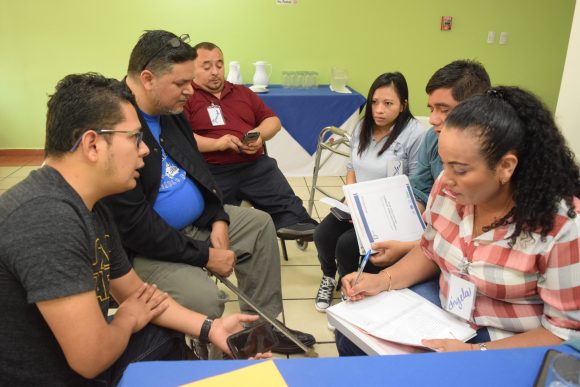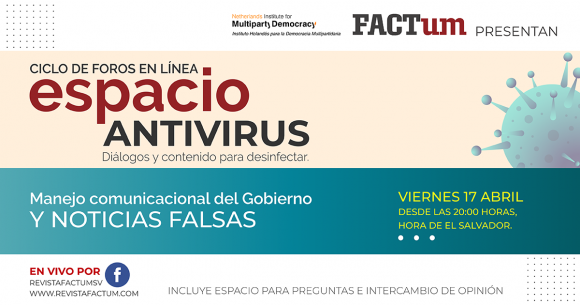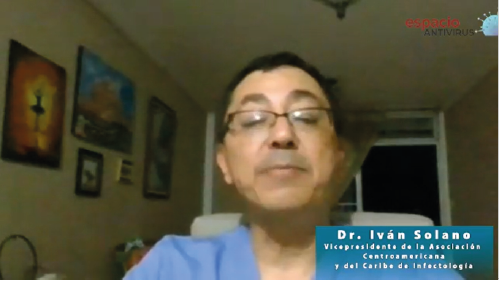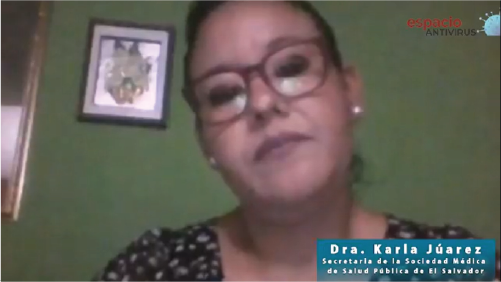El Salvador during Coronavirus: Keeping the discussion alive

This article was originally posted in La Chispa magazine, as part of their El Salvador Special. Read the original article (in Dutch) here.
The COVID-19 outbreak has turned lives around across the world. Of course, El Salvador is no exception. Since the country went on lockdown on 11 March, many El Salvadorians have been placed under mandatory quarantine.
There has never been so much physical distance between the people of El Salvador. Staying home, and working from there, has become the norm for many. As a result, it is harder than ever to come together in conversation.
The distance makes it harder for politicians to meet and listen to their populations; for ordinary people to become engaged in political decision making, and for civil society come to solutions together.
And yet, at the exact moment that conversation is hardest, it has become more important than ever to talk to one another.
Communication is key
It is crucial for people to be informed about Coronavirus measures, and the impact of the virus in their country. And the government must hear the voices of its citizens when putting in place measures and restrictions to combat COVID-19.

This process has not run smoothly in El Salvador so far, with reports of human rights violations, unconstitutional processes and abuse of power by the central government. In fact, the President has publicly defied a Supreme Court ruling that certain government measures are unconstitutional. These include the arrest of people accused of failing to comply with household quarantine and the confiscation of vehicles and property.
The situation is deteriorating by the day and, in the longer term, there is no doubt that this pandemic will leave huge social and economic effects in its wake. Such impacts are already proving hard to control. El Salvador does not have a history of cooperation and dialogue, and this will make it hard to ensure that State organs work together towards sustainable solutions for those most affected by COVID-19.
The Espacio Antivirus Discussion Forum
Faced with this gap, NIMD is working to bridge the physical distance, by opening up space for online discussion and collaborative decision-making.
Together with online magazine, FACTUM, NIMD’s local El Salvador office is organizing weekly online discussion forums, bringing together citizens, experts and political decision makers. The “espacio antivirus” (antivirus space) forum is a democratic space where discussion can take root and begin to thrive.

The forum has two main objectives. Firstly, it seeks to inform El Salvadorians of the situation in their country, including the actions and measures taken by the government. By making expert advice and analysis available to the general public, the forum provides an impartial source of information on the health situation, public security, the economy and poverty.
This objective is about ensuring people have the information they need to stay safe and well. But it’s also about holding politicians to account. It’s making sure people know and talk about the government’s actions and their impact, including poor use of resources, and poor decision making – things which can be corrected over time, if there is enough public pressure.

Secondly, the forum aims to reach politicians. The expert speakers put forward key conclusions and recommendations for better management of the crisis. The ultimate aim is to inspire reflection among politicians, and put forward concrete solutions to reduce the impact of social, economic, democratic and health impact of the COVID-19 crisis in El Salvador.
Of course, the key aim is to reach politicians directly with these proposed solutions. For those who do not watch the forum discussion, NIMD is also putting together a text with all the main conclusions and recommendations resulting from the discussion. This document will be presented to key figures within political parties and other decision makers.
The discussions in practice
The discussions are held weekly, with a panel of politicians and experts. They are broadcast online, via Facebook Live, and open to all. Each week is a different topic, carefully chosen by NIMD to reflect the main areas disrupted by the pandemic. These topics link directly to the themes of democracy, development and strengthening the rule of law.
NIMD’s political knowledge and network, garnered through eight years of supporting democracy in El Salvador, is vital for identifying themes and reaching out to expert speakers. At the same time, FACTUM’s wide reader base and reach on social media ensure that the talks reach and inform larger numbers of the general public.
Facebook Live was chosen as the main platform to broadcast the discussions, given Facebook’s popularity in El Salvador, as the country’s most used social media. It is the ideal platform to allow a large proportion of the population to watch the forum without major restrictions. All people need to listen to the discussion is an internet connection and a Facebook account.

Following the event, the live recording of each discussion remains on Facebook so that more people can watch. Indeed, while the first two forums reached 750 participants live, this number went up to over 11,000, when you include those who watched the recorded discussion.
Proposing solutions to the healthcare crisis
The forums kicked off with a focus on health. The first discussion brought together a high-level panel of health experts. These experts took a detailed look at whether El Salvador’s health system is prepared to deal with the crisis; evaluated the decisions taken so far by the government; and put forward a number of suggested actions for the political sector.

Their evaluation, showed, for example, that public health services are using certain drugs to treat infected patients, despite the fact that these have not been proven to effectively combat COVID-19. As such, the panellists called on the government and health sector to follow guidance from the World Health Organization (WHO) and Pan American Health Organization (PAHO).
Other recommendation centred around the crucial importance of psychological care. The experts highlighted the potential psychological effects of exposure to crisis, and the panic it can generate. As such, as well as advocating for access to psychological care for all, the experts also called on the government to be mindful of the potential impact of their communications around the virus.

Lastly, the experts recognized the precarious health situation in El Salvador, including the fact that the country does not have a health board. For this, they suggested that the government could create a decision-making board made up of medical experts. Effective decision making by medical experts could improve health care and ultimately reduce the number of deaths from the virus.
Continuing the discussions
Since the first discussion, the weekly forums have continued to ensure the correct information reaches people, and appeal to politicians for transparent effective policy-making.
Together with experts, NIMD and FACTUM have explored the democratic impact of COVID-19, the effects of the crisis on vulnerable families (and public policy alternatives) and the social and economic crises stemming from the lockdown.

COVID-19 has not only exposed the precarious health system in El Salvador, but also the vulnerability of the economy, and lack of transparency and clear communication. As such, the online discussions play an important role in informing viewers, making them aware of their rights, and providing a timely analysis on how to leaders should manage crises.
By making voices heard, and proposing practical solutions, the discussions hope to play an important role in bringing politicians to account and bringing people closer despite the physical distance between them.